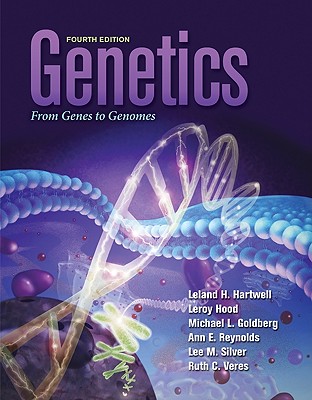Instructor: Steve Mount (contact: steve [at] stevemount [dot] info)
Coverage. Methods of genetic analysis and genomics. The primary species are genetic model organisms: the yeast Saccharomyces cerevisiae, the worm Caenorhabditis elegans, the plant Arabidopsis thaliana, the fruit fly Drosophila melanogaster, the mouse, and humans. For each of these species we will consider methods for the identification of informative mutations revealing new genes or new gene functions and methods for testing the function of genes, including through the expression of modified genes. Genomics, including applicable genomics resources and practical bioinformatics tools, will also be emphasized. We will bear in mind throughout the application of information from model organisms to organisms that are not among this select group.
Meetings Tues. and Thur. 4:00-6:00 pm in 1207 Microbiology.
Prerequisites:
Genetics and at least one advanced course in either Genetics, Biochemistry or Molecular Genetics at the undergraduate level. Those without these prerequisites are encouraged to take BSCI 410 before (or instead of) 688I. Permission is required (contact the instructor), but all BISI graduate students will be able to take the course (in which case, permission is granted through the BISI office).
Readings:
Papers from the primary literature in molecular genetics are required reading. Papers and supplemental readings will be available online. Citations and links will be provided online, in a Google doc available at ongen.us/688I-2014.
I like to address questions about the science in writing so that I can disseminate my answers to the entire class. Please tell me if are asking a question that you don't want to see shared. Questions and answers will be made available to the entire class by a method selected by the class (probably either just email or through Canvas).
Textbooks:
About the older editions: The bookstore will not carry the second or third editions, and I will check page numbers against only a single edition (the fourth edition) when assigning readings. However, the second edition (or any other recent and comprehensive genetics text) should be adequate if you are prepared to use the index and other sources to find the information you need.
Additional books.
Some of these books (and others) are available online at NCBI (see www.ncbi.nlm.nih.gov/entrez/query.fcgi?db=Books).
These are the books that I consult when preparing my lectures.
- Meneely (also recommended), Advanced Genetic Analysis: Genes, Genomes and Networks in Eukaryotes. Oxford 2009.
A survey of methods focused on model organisms.
- Hawley and Walker, Advanced Genetic Analysis: Finding Meaning in a Genome. Blackwell 2003.
An excellent source for advanced genetic concepts that are not presented elsewhere. I use it especially for meiosis.
- Strachan and Read. Human Molecular Genetics 3 (HMG) Wiley. 2010. ISBN 978-0-8-1534182-6
This excellent book is a nice supplement for human genetics. I consult it regularly and will present some material from it.
The second edition is available online at NCBI.
- Alberts et al., Molecular Biology of the Cell. Garland. 2007 (5th edition).
An old edition of this book is online at NCBI.
- Griffiths et al., Introduction to Genetic Analysis. Freeman. Tenth Edition 2010.
An old edition is available online at NCBI. I use it especially for linkage and the Poisson distribution.
- Gibson and Muse, A Primer of Genome Science. Sinauer. 2009. (This is the Third edition; the first was 2002)
A source for Genomics.
- Mount, Bioinformatics: Sequence and Genome Analysis. CSHL Press. 2013. (This is the Second edition; the first was 2001)
Really the best book on Bioinformatics at this level. (The author is not a relative)
- Molecular Biology of the Gene. Watson et al.
- Weaver, Molecular Biology.
- Recombinant DNA: Genes and Genomes - A short course. 2007. Watson, Myers, Caudy and Witkowski.
Grading. Your grade will be determined as described in detail on another page. Most of your grade will be based on your reading of six carefully selected papers from the genetics literature. The goal is to learn how to extract from a paper what claims are being made, how the results were obtained (i.e. which experiments were done), why the experiments were done the way they were, whether the data justify the conclusions and what caveats remain, why these experiments were done at all and why we should care.
On the date that a paper is to be discussed, come to class familiar with the paper, and with a copy of the paper in hand (or with the PDF on your laptop or tablet). Your familiarity with the papers will be judged by your participation in the discussion, including presentation of material and quizzes.
Appointments outside of class: I will normally be available immediately after class. I am also happy to set up an appointment to meet with you at other times. Please send an email after consulting my online calendar bit.ly/SMM-cal.
Page by Steve Mount
Please report any bad links or other problems
Last modified March 23, 2014.
